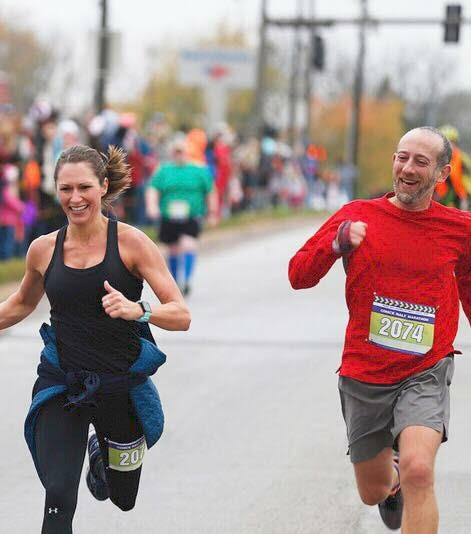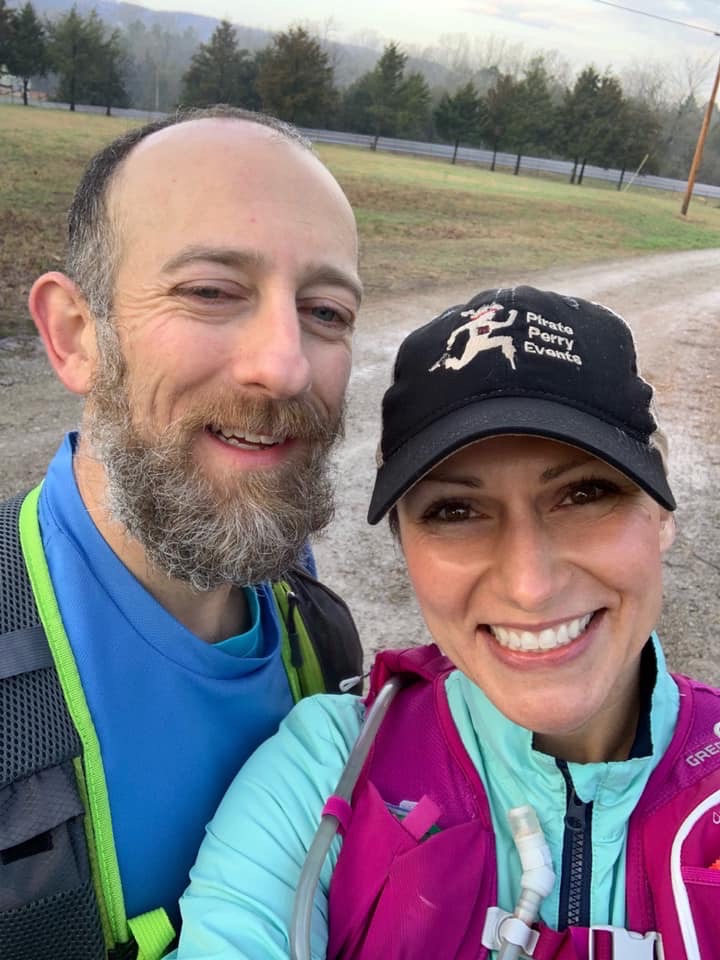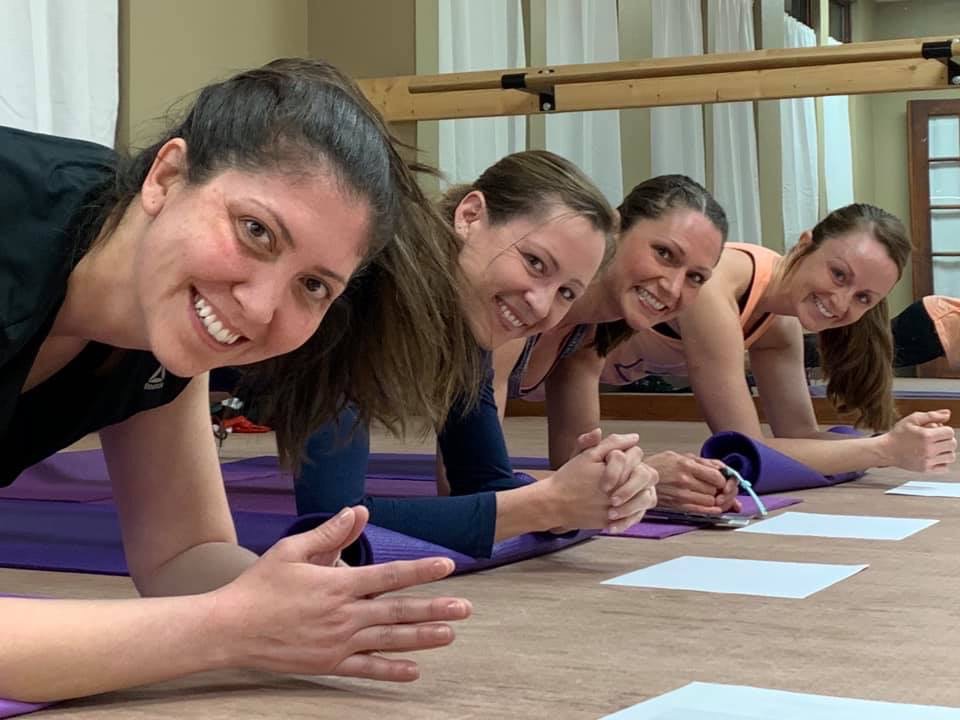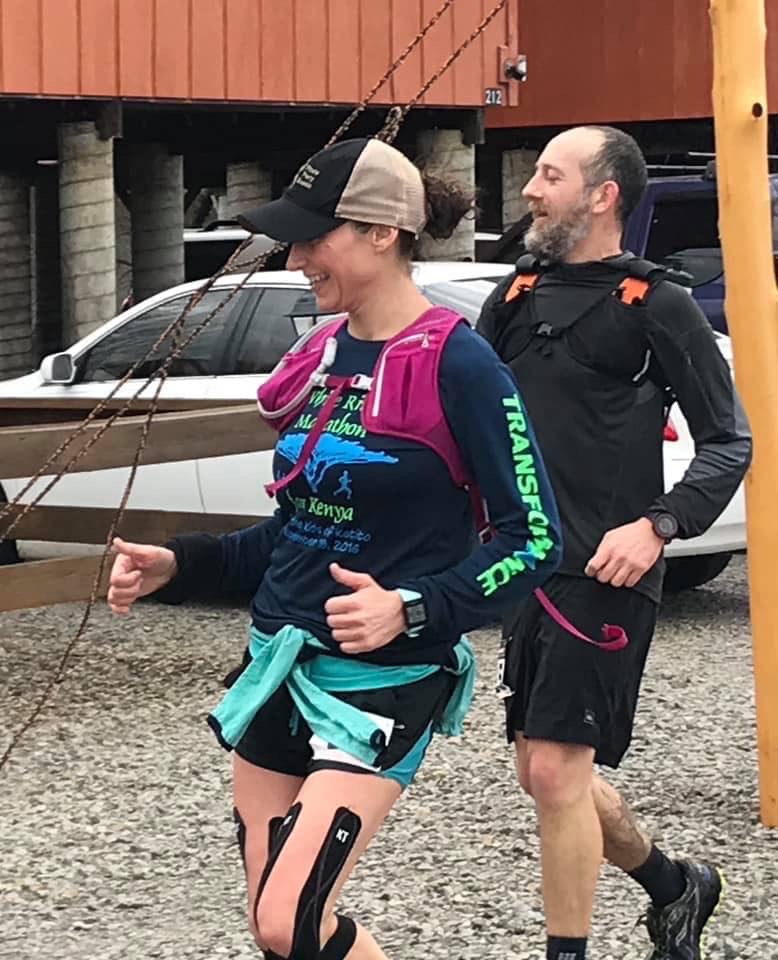
Does exercise impact our mental health?
When we think of the many types of mental health treatments, exercise and physical activity rarely appear at the top of the list, if they make the list at all, which begs the question, “how much does exercise impact our mental health?”
I’ve struggled with my mental health since I was a teenager, first being diagnosed as having depression. I was later diagnosed with bipolar disorder and panic disorder. Through the years, I’ve seen many doctors, have taken many medications, talked with several counselors, and have seen the walls inside several psychiatric hospitals. Until my late 30s, I relied on my doctors for the best treatment plan possible. While I believe they were giving me the best care for what their education covered, it wasn’t the best care for me.
My treatment plan always focused on medication. I’m still of the belief that many of us will always need medication, but meds don’t cure us. They don’t even put us on the same playing field as everyone else. Our bodies are very complex, and all our systems are interconnected. Everything we do to our bodies and everything we put in them is either “fighting” disease or feeding it. I like Jim Carrey’s quote, “I believe depression is legitimate. But I also believe that if you don’t exercise, eat nutritious food, get sunlight, get enough sleep, consume positive material, surround yourself with support, then you aren’t giving yourself a fighting chance.”

Power of Nutrition & Fitness
Never settling for anything, including my mental health struggles, I always fought to feel better. Unfortunately, I didn’t learn the significance of fitness, food, supplementation, and sleep until I was 38 and started studying the gut-brain connection. The more I learned, the more I wanted to learn, and it has now become my passion. While I believe in doctors and psychiatrists, their studies barely tap into nutrition and fitness, which are imperative for our mental (and physical) well-being. When diet and exercise are mentioned in a doctor’s office, they usually aren’t emphasized as much as the medication being prescribed. My question will always be, “why?” Even though everyone believes there are benefits from physical activity, most people don’t fully comprehend the magnitude. We are quick to associate exercise with calories, muscles, and fat, not hormones and the chemical reactions that are taking place inside us.
My personal experience tells me that exercise does not take away the dark and cloudy that comes with mental illness, but when done right and done consistently, it can only help. My personal experience also tells me that my highest and happiest moments are often associated with exercise, workouts, fitness friends, running, races, and pushing myself to the limits. It’s not by accident either; exercise has many benefits on our mental health.

Benefits of Exercise on Our Mental Health
1. Endorphins
When we exercise, our bodies produce chemicals called endorphins. The name endorphin comes from the words “endogenous,” which means “from the body,” and “morphine,” which is an opiate pain reliever. Endorphins got their name because they’re the body’s natural pain relievers. They not only reduce pain, they also boost pleasure resulting in a feeling of well-being.
2. Serotonin, Dopamine, and Norepinephrine.
Serotonin, Dopamine, and Norepinephrine. Exercise also increases the body’s production of serotonin (the happy chemical), dopamine (part of the reward system), and norepinephrine (helps the body respond to stress). These neurotransmitters play an important role in regulating our mood, as well as many other critical bodily functions.
3. Self-Confidence
Exercise can boost our self-confidence in several ways, such as improving our mood and making us feel stronger and more independent. We become more physically fit and healthier, which can have a positive impact on our relationships, careers, goals, and aspirations.
4. Self-Esteem
When we commit to a schedule, we’re making ourselves a priority and telling ourselves we’re important and worth it. The sense of accomplishment from getting out the door and completing each workout can increase self-esteem and hopefully create positive self-talk.
5. Energy
Exercise delivers oxygen and nutrients to our tissues and helps our cardiovascular system work more efficiently. When our heart and lungs are healthier, our energy increases. Regular exercise creates new mitochondria and improves the overall function of existing mitochondria. Mitochondria are the parts of cells that take in nutrients and turn them into energy our cells can use. While poor mental health can feel like it depletes you of energy, exercise is exactly what you need to increase it. As a matter of fact, exercising when you need it the most is the best way to appreciate the power it has on our mood and spirit.
6. Relationships
Joining a team sport, group exercise class, running or cycling group, etc. helps cultivate new, positive relationships. The people we’re surrounding ourselves with have a desire for fitness, so they’re great accountability partners and often the support system we need.
7. Self–Efficacy
Exercise can improve the belief we have in ourselves. An increase in self-efficacy gives us more confidence that we have influence over the circumstances that impact our lives.
8. Reduced Anxiety
Reduced anxiety is a side-effect of chemical activity happening inside our bodies when we exercise. It’s also due to less stress, better sleep, and improved self-confidence and self-esteem.
9. Physical Fitness
Chronic disease and sickness can contribute to mental health conditions and vice versa. Exercise (along with real food) improves our physical and mental well-being. It can help manage chronic disease symptoms (if not reverse them) and can help with weight loss and weight management.
10. Reduced Stress
Exercise decreases levels of tension, stabilizes mood, and improves sleep, all of which help reduce stress. In addition, physical activity helps take your mind off your worries or stressors. Focusing on repetitive motions during certain exercises can produce some of the same benefits as meditation, which can also help in reducing stress.
11. Improved Sleep
Exercise can improve our sleep for several reasons, as well as our quality of sleep. On the simplest level, exercise reduces stress and tires us out making us rest better.
12. Pride
Exercising gives us a sense of pride for accomplishing something hard and helps us realize how strong we are and what our bodies are capable of.

Possible Barriers to Exercising When You Have a Mental Illness
It’s easy to find excuses, especially when you’re down; I know because I’ve been there. If the following sounds like tough love, it’s because of the impact fitness has had on me and the power I know it has to impact you as well.
1. No Time
Some of the busiest people in the world find time to take care of themselves. You will always find time for the things you make a priority, and we should ALWAYS make ourselves a priority. We must take care of ourselves in order to take care of anyone else to the best of our ability. If this means getting up 10 or 20 minutes earlier so you can walk, do a round or two of HIIT, lift some weights, etc., then do it! Don’t let time be your excuse. You’re worth it!
2. No Energy
If you feel like you don’t have the energy to exercise, then exercise is exactly what you need. Exercising will give you energy. I know from personal experience that when you’re down, exercising may be the last thing you want to do, but don’t settle for the way you feel! Do everything you can to muster the determination to get up and move. You will be proud and thank yourself for it later. Then get up and do it again tomorrow! You got this!
3. No Money
I understand “lack of money” is a thing, and I have complete empathy for it. If you don’t have the funds for a gym membership, group classes, personal trainer, etc., check out YouTube videos on your phone. If you have babies at home, there are many workouts available that include your littles – squats, core work, the list goes on. You can also walk or run. Running has changed my life. If you’re interested in becoming a runner, check out our So, You Wanna Be A Runner post. Working out alone may take a little more discipline, but if it’s a priority, you’ll make it happen. Remember, you’re worth it!
4. Lack of Motivation
If you lack the motivation, here are 29 Smart Ways to Motivate Yourself to Work Out, and I think they’re great! If you’re on Facebook, follow a few people in your network who inspire you. Their drive and motivation may help give you the nudge you need to get started. On that note, if Facebook is draining you, you may be following the wrong people. Who are your FB friends? It may be time to clean house and unfriend and unfollow all those who cause negative feelings, emotions, and/or thoughts. While on the subject of social media, this is a good time to remind you to never compare yourself to others. God made you special, so embrace your individuality.
5. Dislike Exercising
You have two options here! Change your perspective or change your exercise.
Option #1 Ask yourself why you don’t enjoy it. Is it because it’s hard? Well, it’s supposed to be hard. Challenge is where the change happens. If you’re not happy where you are, don’t settle. Change is exactly what you need. You must remember why you’re exercising and view it differently. You’re not doing it to punish yourself; you’re doing it to celebrate what your body can do and because you’re worth it! If better mental health is your reason, remember that!
Option #2 If changing your perspective isn’t working, then you must change your workout. There are too many forms of exercise or types of workouts available for you to simply not enjoy working out. You need to be open-mined and search for something you connect with. If you have the resources to join a group class, I encourage you to try as many as you can until you find a class you enjoy, with an instructor you like, and people you feel good being around. It may take a couple classes to get a feel for it, so don’t give up too soon. If you aren’t able to join a group class, I encourage you to Google, YouTube, or ask around until you find something you like and will enjoy spending time doing – a stress reliever, something therapeutic, something fun and challenging, etc. It’s out there, so go find it!
6. Out of Shape
If you feel like you’re out of shape, that is precisely why you should be exercising, not an excuse not to. Start slow if you must, but you must start! You don’t need to run a marathon next week. As a matter of fact, you never have to run one. If you’re hell-bent against running altogether, you don’t have to. I would encourage you to give it a shot though because I think it’s truly magical, but if you can’t muster the motivation to do it, muster the motivation to do something else. It’s so important for your mental and physical health, so make it happen!

What is the Best Exercise for Our Mental Health?
This is an important question with an easy answer. The best exercise for us is the one we do! What does that mean? The best exercise recommendations, even with studies attached, don’t matter if you’re not going to do them. My best piece of advice is to find something you love so you’ll commit and stick with it. You’re less likely to stay dedicated to an exercise or workout you dislike. All exercises have their pros and cons. Depending on your goals, some are certainly better than others, but only if you do them, which is one reason group fitness and team sports tend to be the best – accountability!

Why Group Fitness and Team Sports are the Best for Mental Health
1. Happy People
We listed reasons why exercise makes us happier. Now multiple that by a class full of people. Happiness is contagious! A lot of group fitness classes are overflowing with good vibes. If yours isn’t, you’re in the wrong one.
2. Structured Schedule
A schedule can be good for those of us with a mental illness. It’s also good for us to have something on the calendar so we can plan around it. If we want physical activity to change our lives, we must make fitness our lifestyle. If we want it to become our lifestyle, it must remain on the schedule.
3. Accountability
Once you commit to a class and stick with it, others in the class may become your fitness family. Unconsciously or consciously, you begin to hold each other accountable.
4. Work Harder
Even though I’m extremely motivated, it’s difficult for me to work as hard or as long when I’m alone. For me, having a running or workout partner is almost ALWAYS better.
5. Safer
When you have an instructor, trainer, or coach to show you correct form, the workout can be safer.
6. NO STIGMA
Exercise is the one treatment that has zero stigma attached to it!
Everyone is different. The only thing consistent is that exercise is beneficial for our mental health. As for the type, intensity, frequency, and duration, you must find what is best for you. I’m passionate about HIIT, running, weights, and core work, but that combo isn’t for everyone. While I believe in them, I think it’s more important to find what will make you get up, get dressed, and get out the door. Don’t be afraid to put yourself out there and try new things or even circle back around and try something you’ve tried before. You never know, it may just change your life!

How & Why I’ve Made Fitness My Lifestyle
I grew up an athlete, and today I am a certified personal trainer, HIIT instructor, and happy runner. I love sweating, feeling strong, and working out my frustrations, sadness, worries, anger, and confusion. When life is hard and everything seems tough, the best hours of my week are the hours I teach class. Those around me most likely have no idea how much I appreciate them being there.
I love everything about it!
- the people that I now call my friends who keep showing up with smiles on their faces
- motivating others so they can see the badass inside themselves
- pushing others past the limits they set for themselves
- seeing their faces and smiles when they pass those limits
- learning how to become a better instructor, trainer, motivator, listener, athlete, friend, and person
- feeling happier at the end of every class because I’ve helped someone see the stronger side of themselves
The magic…
My life isn’t perfect or without struggles. There are ups and downs, but I can say with certainty that many of my ups are associated with fitness, which is why I’ve made it a lifestyle. Fitness, especially running, has truly changed my life. If you’re not a runner (yet😉), don’t be too quick to dismiss it, even if you tried it before. I encourage you to participate in at least one race, if you haven’t already. When you do, I hope crossing the finish line gives you the feeling it gives me…every single time I cross one. Those moments are some of my favorites. As someone who has seen a lot of dark and cloudy days and many days wishing I wasn’t here, I can genuinely say those finish line moments are priceless and some of my happiest!
I mentioned running being magical, and I feel like it is for many of us. The running community is amazing and will always welcome you. I believe it’s because running has changed all our lives in one way or another, and it’s impossible to not want that for someone else.
One last thing I would like to add to my running pitch 😉…get on the trails! Trail running will get you in nature and bring a whole new experience, and I’m certain the trail running community will be great for your spirit!

Run Happy! Find Your Fitness! Be A Badass! You Got This! You’re Worth It!”
